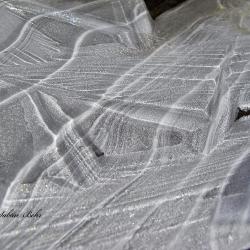Prevention is better than cure and so we list the following guidelines which will go a long way in avoiding security related problems in the Berg (though there are no guarantees!). We have also included a list of precautions and suggestions of what to do when you are confronted with a problem.
These may be discussed further n our Drakensberg forum by clicking the link at the bottom. You may also read about precautions that are specific to an area by clicking the available links.
- The single biggest precaution and weapon in this whole issue is to acknowledge that there is a problem, to take it seriously and remain alert at all times. Never think “There is no-one for miles around!”, or “It is too dark!" or "The weather is too bad for them to bother trying tonight!”. These incidences have occurred in the most unsuspecting circumstances, places and weather conditions. Do not underestimate their intelligence, their ability to walk in the dark and bad weather and their determination to get your precious equipment!
-
- There is undoubtedly safety in numbers, so try and hike in big groups, especially in areas where there are known to be problems. In reality even big groups have experienced problems so do not fully rely on this.
-
- Try not to leave equipment unattended, especially next to paths, at the top of passes and in prominent caves. Hikers have had their belongings stolen before in this way.
-
- Most problems occur at night, so the choice of campsites is critical. Try to avoid camping near major paths and passes that the locals use, and certainly no where near kraals (if they are occupied).
-
- Try to set up camp where the locals have not seen you. This is especially true for areas such as Giants Castle and The Amphitheatre. A very sensible strategy in cases such as these is to have an early supper and continue hiking for some distance in the dark and then set up camp. Should you feel uncomfortable or threatened in any way it is also sensible to post guard duty.
-
- If you are sleeping in tents take your boots (a favourite item!) and valuables such as cell phones, camera's, car keys, money etc. into the tent with you and keep them packed ready in a smaller bag. Pack all other items into your backpack and tie all backpacks to each other (take some cord with) as well as to the tent itself. Basutho's typically snoop around campsites at night, firstly looking for loose items lying around but also feeling under the tent flysheet for loose items they can pull out. They may actually loosen and lift up the flysheet or slash it with a knife. Having everything packed away and fastened to the tent takes away their element of surprise and once you have been woken up by the commotion they will in most cases be deterred. Balancing a cooking pot with some utensils in it on the backpacks is a crude alarm since it will fall off and make a noise should the packs be tugged.
-
- Should you be sleeping in caves do not leave equipment lying around at the mouth of the cave. Instead try as much as possible to stack it at the back of the cave behind the sleeping area where it is difficult to get to.
Beyond these preventative measures the following suggestions may help in situations when you are confronted with a problem:
-
- The key here again is mental preparedness. Acknowledge that there is a risk and think through what you would do if someone is attempting to steal from you or assault you. Should it ever happen there may be confusion and panic, so having thought through it rationally before the time can help a lot. Once again, most tips are centred around situations at night. This is when you are most likely to have problems since your defences are down when you sleep and you are tightly wrapped up in your sleeping bag.
-
- Listen carefully to sounds outside and investigate if you are not sure what is causing it. Tents flapping in the wind can be a nuisance but Basuthos may even use this to their advantage.
-
- Sleep with your torch, boots, jacket and sticks (if you have) ready – so that if you have visitors you can get up as quickly as possible. If you are being ambushed make sure you have your bag full of valuables with you too, as already mentioned earlier.
-
- If you are part of a larger group, run through an emergency plan and designate an assembly area in your campsite. Should you be in an area like Giants Castle you can even collect a pile of rocks to throw back in defence.
-
- Provided they are not armed you stand a chance in fending them off. Most will be petty thieves and will run away when confronted, or run a short distance and lie down flat in the dark. Be cautious and prepared for a possible confrontation and be wary of their knobkerries (a walking stick usually with a knob on the end), shamboks (hard leather whip) and stones. If they are armed with guns do not risk your life and rather give them what they want. Pepper spray and very bright security flash lights (ones that temporarily blind attackers) are very useful items which may give you an advantage. Hiking sticks and stones are also weapons one can use.
-
- Should you wake up and the thieves run off, bear in mind that they may hide close by and try again later. It may be necessary to post guard duty or to change campsites, even if it means walking in the dark.
-
- If the thieves run off with some of your equipment check the proximity of your campsite as they may drop everything in order to get away if they have been startled. Check the wider area around the campsite in the morning as they may go through what they have grabbed and discard what they don't want.
-
- Cell phones are increasingly useful in the Berg. Have it on you and program in all numbers of the members of your group, the authorities of the area you are in & any emergency rescue numbers available. The hiking maps for the Berg list several numbers.
- - Report all cases of theft and assault to the authorities concerned and depending on the severity of the incident you should also report it to the police.


